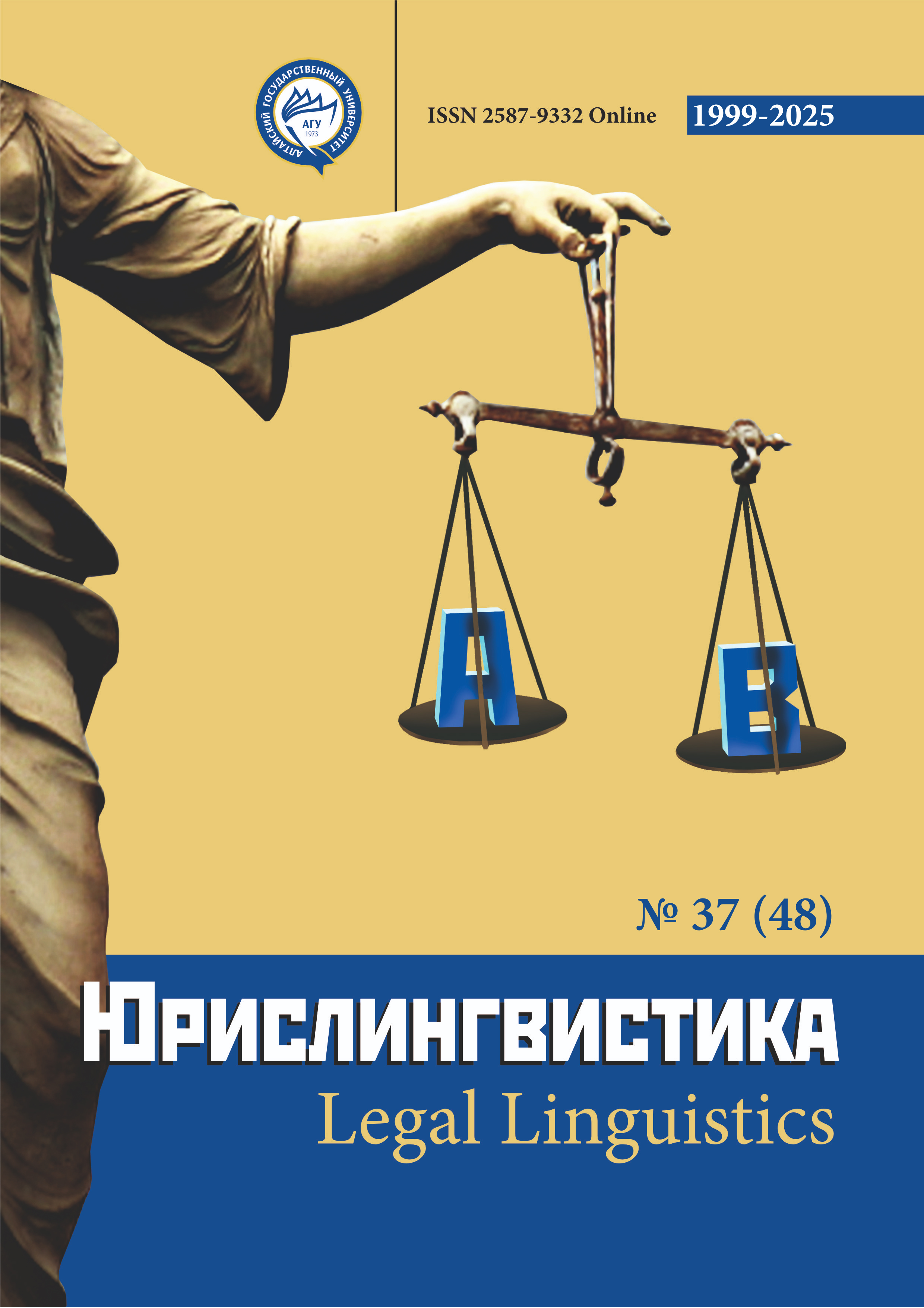The Evaluation Categories in the Disposition of Part 1 of Article 148 of Criminal Code of Russin Federation "Violation of Freedom of Worship”
УДК 343.42, ББК 67.408.1
Abstract
The article discusses the evaluation categories of the disposition of part 1 of article 148 of the Criminal Code of the Russian Federation. The authors draw attention to the problem of the lack of any legal definitions of such categories as “insult”, “religious people”, “religious feelings”, “publicity” and contempt of society”. The doctrinal definitions of these categories are described in the article. The authors also remark some problems with these definitions from the legal point of view. The examples of particular legal cases are analyzed and the results of misinterpreting of the essences of the before mentioned terms by the law enforcement authorities are described. The authors compare the disposition of part 1 of article 148 of the Criminal Code of the Russian Federation with the dispositions of article 213 of the Criminal Code of the Russian Federation and article 5.26 of the Code of the Russian Federation on Administrative Offences. The authors suggest solutions to the problems discussed. For example, the idea of explaining some terms in the Resolutions of the Plenum of the Supreme Court of the Russian Federation or in the Federal Law «On Freedom of Conscience and Religious Associations».
Downloads
References
Конституция Российской Федерации (принята всенародным голосованием 12.12.1993) / Собрание законодательства РФ. 03.07.2020. № 31. Ст. 4412.
Федеральный закон "О свободе совести и о религиозных объединениях" от 26.09.1997 N 125-ФЗ / Собрание законодательства Российской Федерации от 29 сентября 1997 г. N 39 ст. 4465
Уголовный кодекс Российской Федерации от 13.06.1996 № 63-ФЗ (ред. от 21.03.2023) / СЗ РФ. 1996. №25. Ст. 2954; СЗ РФ. 2022. №48. Ст. 8313.
Клинецкая Н. В. Религиозность молодежи в современной России / Вестник Санкт-Петербургского университета. Международные отношения. – 2004. – №4. – С. 75-86
Зимаков И. П. К вопросу об уголовно-правовом значении верующего при нарушении права на свободу совести / Скиф. – 2021. – №12 (64). – С. 95-99
Рева Г. В., Цергой Т. А. Концепт понятия оскорбление религиозных чувств в социальном пространстве современности / Вестник Майкопского государственного технологического университета. – 2017. – № 4. – С. 95-100.
Постановление Пленума Верховного Суда РФ № 10 от 20.12.1994 "Некоторые вопросы применения законодательства о компенсации морального вреда" (в ред. Постановления Пленума Верховного Суда РФ от 06.02.2007, N 6). URL: http://www.consultant.ru
Гражданский кодекс Российской Федерации (часть третья): Федеральный закон от 26.11.2001 № 146-ФЗ / Собрание законодательства РФ. - 03.12.2001. - № 49. - ст. 4552.
Казанцев Д. А. К вопросу об уголовно-правовой охране религиозных чувств верующих / Российский следователь. – 2019. – № 9. – С. 36-40.
Астапов С. Н. Осквернение сакрального: казус "Тангейзера" / Южный полюс. Исследования по истории современной западной философии. – 2017. – № 3 (1). – С. 6-17
Алмакаев Р. Н. Признак публичности в уголовном законодательстве: краткий анализ / Молодой ученый. – 2017. – № 11 (145). – С. 335-338.
Copyright (c) 2025 Анна Боженова, Владислав Ерахмилевич

This work is licensed under a Creative Commons Attribution 4.0 International License.
The authors, which are published in this journal, agree to the following conditions:
1. Authors retain the copyright to the work and transfer to the journal the right of the first publication along with the work, at the same time licensing it under the terms of the Creative Commons Attribution License, which allows others to distribute this work with the obligatory indication of the authorship of this work and a link to the original publication in this journal .
2. The authors retain the right to enter into separate, additional contractual agreements for the non-exclusive distribution of the version of the work published by this journal (for example, to place it in the university depository or to publish it in a book), with reference to the original publication in this journal.
3. Authors are allowed to post their work on the Internet (for example, in a university repository or on their personal website) before and during the review process of this journal, as this may lead to a productive discussion, as well as more links to this published work (See The Effect of Open Access).










